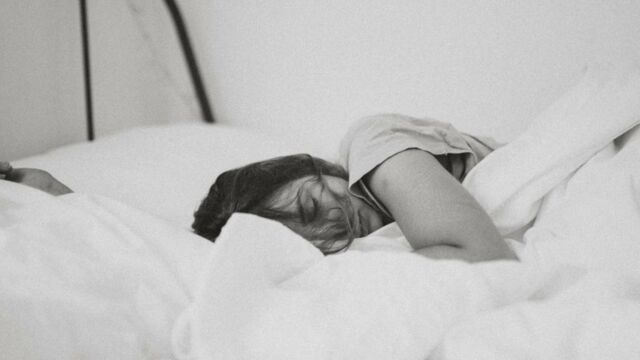For those who aren’t morning people, it can be really hard getting out of bed as soon as the alarm goes off. That’s why so many of us hit the snooze button to get an extra 10 to 20 minutes of sleep, depending on how many times you snooze your alarm. But did you know doing that could be more harm than good?
Discover our latest podcast
What happens when we snooze our alarms?
Dr Kat Lederle is a sleep therapist and circadian rhythm specialist at Somnia. She sheds some light on what happens when we hit the snooze button too often.
Contrary to popular belief, hitting the snooze button is more likely to make you feelgroggy and more tired when you wake up than choosing to get up after the first ring. That grogginess can then ‘persist and colour our daytime experience in a negative way,’.
According to Dr Lederle:
When we hit the snooze button, it will start to confuse your body clock because in one way or another that body clock may anticipate that usually the alarm goes off at 6:30, for example, and it will get the body somewhat ready for 6:30,
She then adds:
But when you then decide to have a snooze, the clock and the body are a bit confused
Do we really get more sleep when we snooze our alarms?
Even if you plan to snooze your alarm for an extra 20 minutes of sleep, you aren’t actually giving your body more sleep.
You’re not getting back into proper sleep, so you will remain in a lighter sleep stage.
So if you want an extra 20 minutes of sleep, just set your alarm for 20 minutes later.

Read more:
⋙ Mouth taping for sleep: This unusual technique could help you stop snoring
⋙ Sleep: Try these teas before bed if you struggle to fall asleep
⋙ Contraception: Does the pill affect our sleep schedule?
Don't snooze your alarm, try this instead
There are many things you could do to avoid snoozing your alarm. A simple one is to move your alarm further away from your bed, forcing you to get out of bed to turn it off. Once out of bed, you’ll be less inclined to go back to bed.
Another thing you could do is open your blinds or curtains so that natural light comes into your room. You can leave them open slightly before going to bed so that when the sun starts to come up, the light will filter through your room without you getting out of bed to open them.
According to Dr Lederle:
This body clock needs a daily reset and that is done through morning light exposure, now even when your eyes are closed, you can still perceive light so opening the curtains, at least the body clock will know that it’s light outside and the brain can get on with its data and processes.















